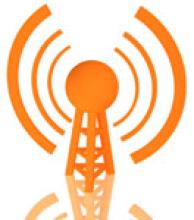Image


Frontier Communications expects to extend its Wi-Fi hot spot service to Burnsville's performing arts center this fall, but a company official admitted Friday that knitting together complete citywide coverage has gone more slowly than expected. The phone provider for the southern part of Burnsville as well as Apple Valley, Farmington and Lakeville, Frontier had expected to have 90 percent of the city covered with a network of broadband Internet Wi-Fi hot spots by now. But Frontier is still moving its wireless service from the south, where it kicked off service in October 2007, into the northern parts of the city.Additionally, the public-private partnership in Minneapolis remains behind schedule (privately owned but built with substantial amounts of public money). The problem is the technology - not the ownership. We continue to believe that the future should feature wireless as a complement to the more reliable and faster wired connections that should be available to everyone. But the more we talk to communities, the more we learn that wireless is more difficult to work with and often more expensive than expected.
